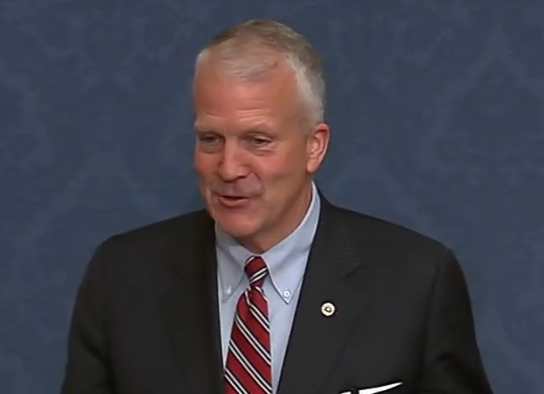- Fish
- Russia
Another area where I’ve been pushing the federal government, with some success, is to help our fishermen and coastal communities, all of whom have experienced very rough times recently.
My team and I have made sure the new administration is focused on opening fisheries on time this spring. We also continue to focus like a laser on fully addressing the disastrous salmon runs that we’ve had on many of our iconic rivers—the Yukon, Kuskokwim and the Kenai, just to name a few.
We continue to keenly focus on leveling the playing field against Russia on unfair seafood trade.
Think about this: For almost the past 10 years, they could export as much fish into America’s markets as they wanted. And they are a huge fishing country. And we couldn’t export one fish into Russia.
It took a long time, but we fixed this unfair situation, working with the Biden administration, that was devastating our fishermen. Then the Russians tried to use a loophole through China to avoid these sanctions—the Chinese Communist loophole. But we shut that down as well.
The end result of this advocacy—and it’s been years of my team advocating on this—is that more Americans are now buying Alaskan “freedom fish” because we’ve shut down “communist fish” from China and Russia! We’re going to continue to focus on that, and that is good news for our state. But there is a lot more to do with regard to our fishermen and coastal communities.
- Farm Bill
It’s time to go on offense with regard to our fishermen. I just talked to the President of the Senate about this. Think about it. Our fishermen are the farmers of the sea. American farmers get loans from the federal government. They get crop insurance and help when extreme weather hurts their harvests. They get federal relief when foreign markets are closed. Why shouldn’t the farmers of the sea get the same treatment from the federal government? I think they should.
The Farm Bill that we’re currently negotiating presents an opportunity to do just that: to de-risk fishing operations for our fishermen and their communities in the same way that the U.S. government does for American farmers.
My legislation is called the National Seafood Supply Act. It would begin to accomplish this through the U.S. Department of Agriculture.
I know all of you are very focused on these issues. We want to work closely with the Legislature on these important initiatives for our fishermen and Alaska’s coastal communities.
VI. One Pill Can Kill
Last year, I raised an issue that hits close to home for so many Alaskans, and that’s fentanyl. Overdose deaths in our state last year were up a staggering 45 percent. We’re going [up], while the rest of the country is going [down]. It is mostly our young people, our future, who are being poisoned and dying. We all can agree that’s unacceptable. A large part of this was the result of Biden administration’s open border policies, with fentanyl pouring in from Mexican drug cartels—who have made their way to Alaska—made with Chinese chemicals.
Well, not anymore. The Mexican drug cartels have rightly been designated terrorist organizations by the new administration, and illegal border crossings are down 93 percent.
But this fight is far from over. We need to do more, especially when it comes to prevention, to help educate our fellow Alaskans—particularly our young people—about this deadly drug.
The DEA says that 7 out of every 10 pills seized contain a lethal dose of fentanyl. Literally, one pill can kill.
That’s why my team and I launched the “One Pill Can Kill” campaign that attempts to highlight the extreme dangers of this drug.
Young Alaskans—our best ambassadors—have gotten involved to create public service announcements we hope to run on TV and radio stations warning each other and all Alaskans how “one pill can kill.”
If this campaign can even save one life of a precious young Alaskan, it will have been worth it. We need to work together on this, and this is another area where my office would love to partner with the Alaska Legislature.








